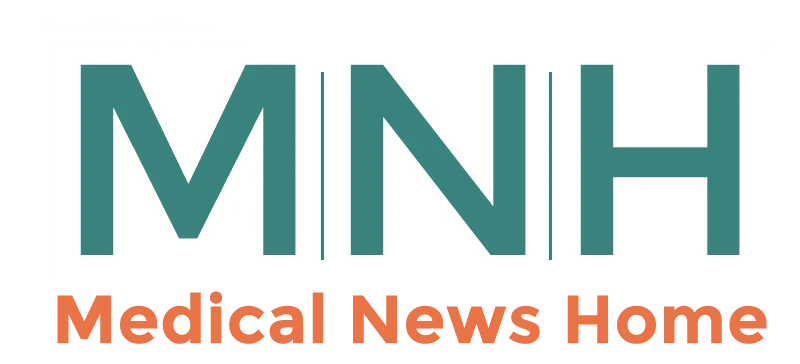The Role of Healthcare Start-Ups in Addressing Major Health Challenges
- Updated on: May 6, 2025
- Published on Feb 22, 2023

In the fast-evolving healthcare industry, start-ups are playing a significant role in introducing novel approaches to improve patient outcomes, provide cost-effective solutions, and tackle major health challenges. Healthcare startups are companies founded to address specific problems in the healthcare industry through innovative technology and business models. These startups are often agile, flexible, and driven by a strong mission to change the status quo.
The importance of healthcare startups in the industry lies in their potential to introduce new ideas and disruptive technologies that can fundamentally change the way healthcare is delivered. They can help address some of the major health challenges facing the world today, including chronic diseases, mental health disorders, and public health crises. By leveraging cutting-edge technologies such as AI, big data, and digital health, healthcare startups can provide solutions that are often more accessible, efficient, and personalized than traditional healthcare models.
With a focus on evidence-based solutions, healthcare startups have proven to be effective in addressing some of the most pressing health challenges facing the world today. By leveraging research studies, case studies, and statistics, they are creating innovative approaches to address problems in the healthcare system. As the healthcare industry continues to evolve, healthcare startups are likely to play a pivotal role in driving innovation, improving patient outcomes, and addressing major health challenges.
Innovative solutions from healthcare startups
Innovative healthcare startups are taking on major health challenges by developing and implementing cutting-edge solutions. These startups are leveraging technologies like artificial intelligence, big data analytics, and machine learning to create novel approaches to some of the most pressing health issues of our time.
One example of such startups is Niramai, a Bengaluru-based company that is using AI-powered thermography to detect breast cancer at an early stage, even in women with dense breast tissue. Another example is Zipline, which uses drones to deliver life-saving medical supplies and blood products to remote and hard-to-reach locations.
Precision medicine is another area where startups are making significant strides. Companies like DNAnexus and Fabric Genomics are using advanced genomics and bioinformatics technologies to develop personalized treatments for complex diseases.
Some healthcare startups are also working to address mental health issues through telemedicine and virtual reality (VR) technologies. Companies like MindMaze and Limbix are using VR to treat conditions like anxiety, depression, and post-traumatic stress disorder (PTSD).
Examples of healthcare startups in action
Case Study: Innovaccer
- Innovaccer is a healthcare startup that provides a data integration platform for healthcare organizations, allowing them to aggregate and analyze patient data from multiple sources in real-time.
- The company’s platform has been used to improve patient outcomes in a number of ways, including reducing hospital readmissions and improving chronic disease management.
- According to a study by the Advisory Board, healthcare organizations using Innovaccer’s platform experienced a 28% reduction in hospital readmissions and a 30% reduction in emergency department visits.
Case Study: Propeller Health
- Propeller Health is a healthcare startup that has developed a digital platform for managing respiratory conditions, such as asthma and COPD.
- The company’s platform includes a sensor that attaches to patients’ inhalers, which allows healthcare providers to monitor medication usage and patient symptoms in real-time.
- According to a study published in the Journal of Allergy and Clinical Immunology: In Practice, patients using Propeller Health’s platform experienced a 50% reduction in asthma-related emergency department visits and a 60% reduction in hospitalizations.
Case Study: Zipline
- Zipline is a healthcare startup that uses drones to deliver medical supplies, such as blood and vaccines, to remote areas in developing countries.
- The company’s technology has been used to improve access to healthcare in countries such as Rwanda, Ghana, and Tanzania.
- According to a study by the World Health Organization, Zipline’s drone delivery service reduced the time it took to deliver blood to remote health facilities in Rwanda from four hours to 45 minutes.
Case Study: AbleTo
- AbleTo is a healthcare startup that provides digital mental health services to patients with chronic conditions, such as diabetes and heart disease.
- The company’s platform includes remote coaching and counseling sessions, as well as personalized treatment plans and self-help tools.
- According to a study published in the Journal of General Internal Medicine, patients using AbleTo’s platform experienced a 58% reduction in emergency department visits and a 33% reduction in hospitalizations.
Potential benefits and challenges of healthcare startups addressing major health challenges
The potential benefits and challenges of healthcare startups addressing major health challenges are numerous, with the potential for significant impact on patient outcomes, healthcare costs, and overall access to care.
Benefits of healthcare startups addressing major health challenges:
Improved patient outcomes: Healthcare startups are often driven by a desire to create innovative solutions to address some of the biggest health challenges facing patients. These startups are able to leverage the latest advances in technology, data analysis, and medical research to develop new tools and treatments that can improve patient outcomes and quality of life.
Cost savings: One of the major advantages of healthcare startups is their ability to offer more affordable and accessible healthcare options. This can be particularly important for patients who are struggling with chronic conditions, such as diabetes, heart disease, or mental health issues, where the cost of ongoing care can be a significant burden.
Increased access to healthcare: Healthcare startups are also uniquely positioned to provide better access to care, particularly for patients in rural or underserved areas. By leveraging telemedicine and other digital tools, healthcare startups can connect patients with healthcare providers and services that might otherwise be out of reach.
Challenges facing healthcare startups addressing major health challenges:
Regulatory hurdles: One of the biggest challenges facing healthcare startups is navigating the complex regulatory landscape in the healthcare industry. There are often strict rules and regulations governing the development and distribution of new medical treatments, devices, and services, and it can be difficult for startups to comply with these requirements while also innovating and growing.
Patient privacy concerns: Another significant challenge facing healthcare startups is the need to maintain patient privacy and security. With the growing use of digital tools and platforms to deliver healthcare services, startups must be extremely careful about protecting sensitive patient information and complying with privacy laws and regulations.
Continued investment in research and development: Finally, healthcare startups must continue to invest in research and development in order to stay competitive and meet the changing needs of patients and the healthcare industry. This requires significant resources and expertise, and startups must be able to secure ongoing funding to support their growth and innovation.


